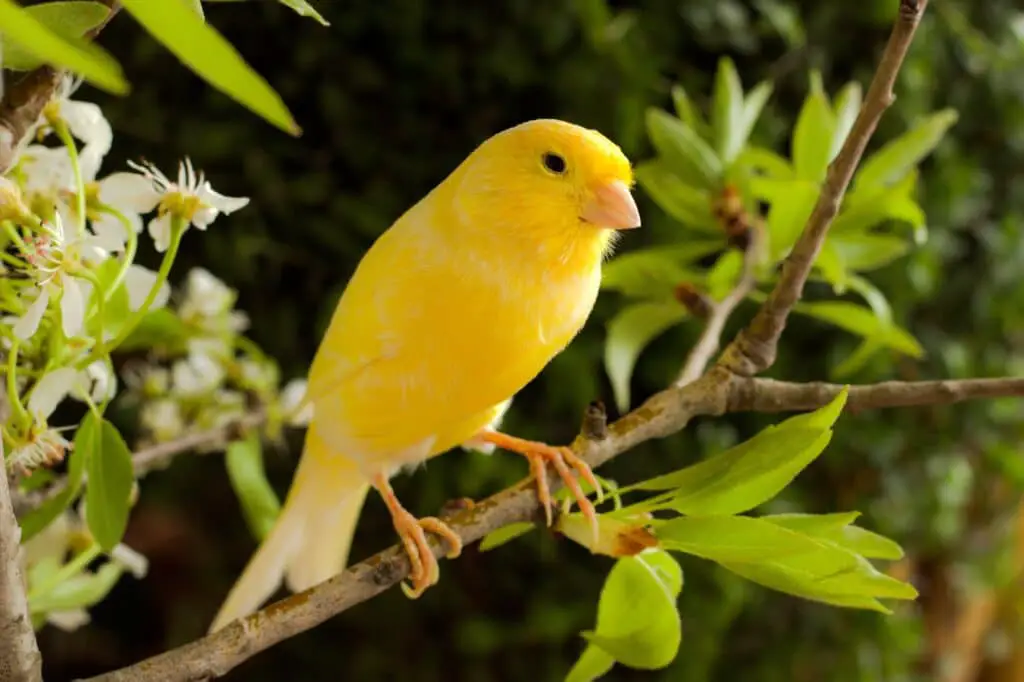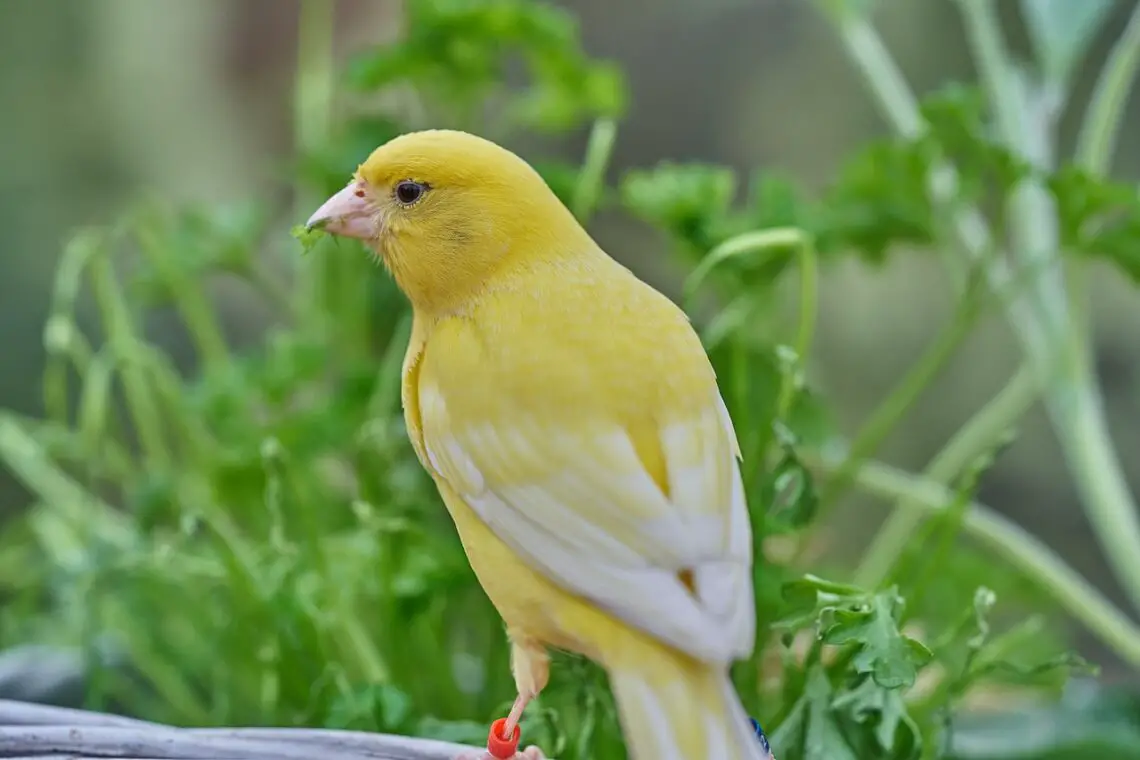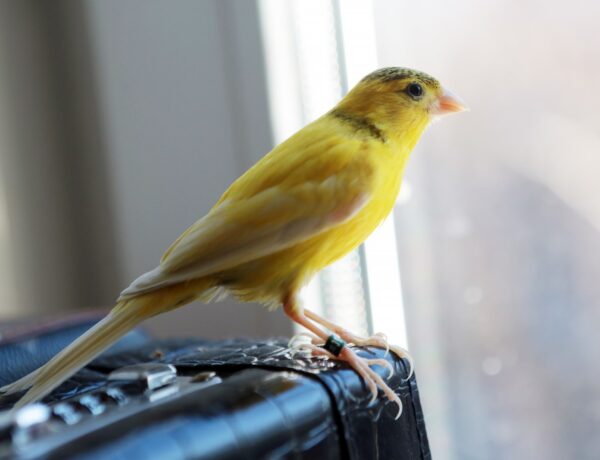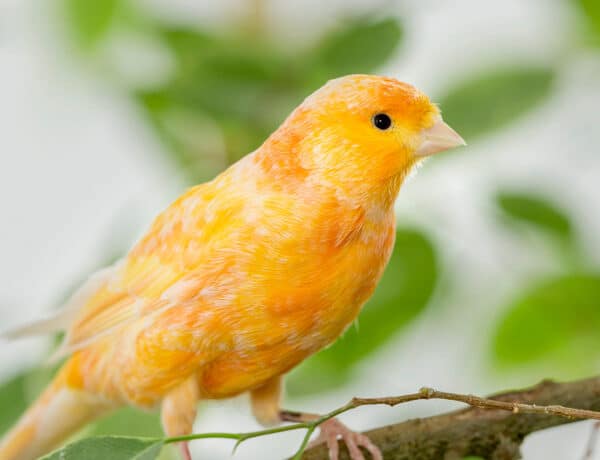Introduction
Are Canaries Good Pets: When it comes to choosing a pet, many people immediately think of furry companions like dogs or cats. However, there’s a world of avian charm waiting to be explored, and at the heart of this feathered realm are canaries. These vibrant and melodious songbirds have captivated the hearts of pet enthusiasts for centuries, offering a unique and delightful pet ownership experience. From their exquisite plumage to their enchanting songs, canaries eat bring a touch of nature’s beauty into our homes while requiring relatively low maintenance. Let’s embark on a journey to discover the joys and responsibilities of sharing your life with these charming little songsters. Canaries are renowned for their stunning plumage. They come in a wide range of colors and patterns, from vibrant yellows to subtle pastels. The visual appeal of these birds can add a burst of color and elegance to any living space. One of the most enchanting qualities of canaries is their singing prowess. Male canaries are particularly known for their melodious songs, which can be both soothing and captivating.
Their tunes can provide a calming backdrop to your daily life, making them the perfect pets for those seeking auditory pleasure. Canaries are relatively low-maintenance pets. They don’t require walks or outdoor excursions like dogs, and their small size means they don’t need as much space. Regular feeding, fresh water, and a clean cage are the primary care requirements, making them suitable for individuals with busy lifestyles. Canaries typically have a longer lifespan than some other small pets, with proper care they can live up to 7-10 years or even longer. This allows for a lasting bond to develop between you and your feathered friend. For people with allergies, canaries can be a good choice as they produce fewer allergens compared to furry pets like cats and dogs. This makes them a suitable option for households where allergies might be a concern. Canaries can be excellent pets for children, teaching them responsibility and fostering an appreciation for nature and wildlife.
Observing a canary’s behaviors, from feeding to singing, can be an educational experience for youngsters. Many pet owners find solace and relaxation in watching and listening to their canaries. The act of caring for these birds and enjoying their company can have therapeutic effects, reducing stress and promoting a sense of well-being. In the following discussion, we will explore the various aspects of canary ownership in greater detail, including their care requirements, housing needs, and tips for ensuring a happy and healthy life for your feathered friend. Whether you’re a seasoned pet owner or considering your first foray into avian companionship, understanding why canaries are good pets is the first step toward a fulfilling and harmonious partnership with these delightful birds.

Are canaries good for beginners?
The canary is strictly an observational bird, making it one of the most low-maintenance best bird pets. They don’t like to be touched too much and are perfectly happy living alone in a cage. You can definitely put them in pairs or in groups- just don’t put two male canaries together as they’ll fight.
One of the most appealing aspects of canaries for beginners is their relatively low maintenance needs. Unlike dogs or cats, canaries don’t require daily walks or extensive grooming. Routine care primarily involves providing fresh food and water, maintaining a clean cage, and ensuring they have access to proper lighting and temperature conditions.
Canaries are small birds, making them suitable for those with limited living space. They can thrive in apartments or small homes without the need for extensive outdoor areas. Their small size also means they don’t produce as much mess as larger pets, simplifying cleaning and maintenance.
Canaries are renowned for their stunning plumage and enchanting songs. Their vibrant colors and melodious tunes can bring visual and auditory pleasure to your everyday life. For beginners, the visual and auditory appeal of canaries can create a captivating and enjoyable pet ownership experience.
Do canaries like to be touched?
Canary birds are suitable for beginners as they don’t have any unusual special needs. But it is important to know that they don’t like being touched and can’t be hand-tamed. You often read that canaries can be kept alone as they don’t flock together in nature.
Canaries are known for their sensitivity, both physically and emotionally. Their bones are fragile, and they can easily become stressed when handled. For this reason, many canaries do not particularly enjoy physical contact.
Trust is crucial when it comes to touching or handling a canary. Building a bond of trust with your bird through regular, non-intrusive interaction is the first step towards making them more comfortable with your presence.
Just like people, canaries have unique personalities. While some may tolerate gentle handling to some extent, others may never enjoy it. It’s important to respect your canary’s individual preferences.
If you wish to socialize your canary and make them more accepting of gentle touch, start by sitting near their cage and talking to them in a soft, soothing voice. Over time, you can introduce your hand into their cage without making any sudden or forceful movements.
Are canary birds friendly?
Canaries are warm and friendly birds, and while they love socialization, they have no problems entertaining themselves when their owners are not at home. Canaries are perhaps best known for their vocal abilities, and for good reason – many canaries, like song canaries, are bred specifically for singing.
Individual Personality
Just like humans, canaries have unique personalities. Some canaries may be naturally more outgoing and inclined to interact with humans, while others may be more reserved and prefer observing from a distance.
Early Socialization
The level of socialization a canary receives during its early development plays a crucial role in its friendliness. Canaries that have positive interactions with humans as young birds tend to be more comfortable and friendly around people.
Trust-Building
Building trust is essential for developing a friendly relationship with a canary. Spend time near the bird, speak softly, and avoid making sudden movements to create an environment where the canary feels safe and secure.
What is the cleanest pet bird?
Smaller birds require less food and produce less waste, which means that there is less cleaning up for you to do. Budgies, canaries, and finches are all good examples of small birds that are relatively low-maintenance. If you’re looking for something a little bigger, cockatiels and conures are also great options.
Budgerigars, commonly known as budgies, are renowned for their cleanliness. They meticulously groom themselves, often throughout the day, which helps to keep their feathers in excellent condition. These small parakeets tend to keep their cages relatively tidy, and their droppings are small and dry, making cleaning straightforward.
Canaries are known for their low-maintenance care requirements. They are tidy birds that usually keep their feathers and cages clean. Canaries produce small, dry droppings, making cage cleaning more manageable than with some larger birds.
Cockatiels are among the most popular pet birds and are relatively clean by nature. They preen themselves and are generally neat in their habits. Their droppings are usually manageable and dry, simplifying cage maintenance.
Is canary or budgie better?
They’re far more affectionate than the canary and sport a bicolor plumage with a crest. For beginners, the parakeet (budgie) is the best choice. They’re friendlier and easier to train, all while remaining a low-maintenance pet.
Beautiful Plumage: Canaries are known for their vibrant and captivating plumage. They come in a wide range of colors and patterns, adding a burst of color to your home.
Melodious Singing: Male canaries are renowned for their melodious songs. If you enjoy the soothing sounds of birdsong, a canary can provide a calming and delightful auditory experience.
Low Maintenance: Canaries are relatively low-maintenance birds. They don’t require extensive social interaction, making them suitable for individuals with busy lifestyles.
Aesthetic Appeal: The presence of canaries in your home can be visually pleasing. Their graceful movements and striking colors make them a decorative addition to any living space.
Is it cruel to keep canaries in cages?
Like dogs on chains, caged birds crave freedom and companionship, not the cruel reality of forced solitary confinement for the rest of their very long lives. Driven mad from boredom and loneliness, caged birds often become aggressive and self-destructive.
Canaries are small songbirds with natural instincts that include flying, exploring, foraging, and socializing with other birds. In the wild, they have the freedom to engage in these behaviors.
When kept in captivity, canaries have their movement restricted by the size of their cages or aviaries. They may not have access to the same stimulating environments as they would in the wild.
The size and design of the cage play a crucial role in determining whether keeping a canary in captivity is humane. A small, barren cage with limited space for movement is less suitable than a larger, enriched enclosure.
Canaries are social birds that benefit from companionship. Keeping them as solitary pets can lead to loneliness and stress. Having another canary as a companion or providing ample social interaction with their human owner is important.
What are canaries scared of?
Since birds are prey animals, anything that approaches from behind or above or suddenly can cause a flight response. If he can see out of a window, he could get startled by wild birds, other pets, people or passing cars. Sounds from outside can also be scary.
Canaries have sensitive hearing, and sudden loud noises can startle and stress them. These noises can include shouting, slamming doors, or even the noise of household appliances.
Canaries are cautious by nature, and sudden, unexpected movements near their cage or within their environment can cause them to become frightened. Approaching the cage slowly and calmly is essential to prevent startling them.
Canaries have an innate fear of potential predators. Even if they are safe in a cage, the sight or presence of predatory animals like cats or dogs can induce stress.
While some canaries may become comfortable with gentle handling and interaction over time, many are naturally wary of being touched. Rough handling or grabbing can cause stress and fear.
Do canaries like the sun?
Be sure to place your canary’s cage in a safe place away from other pets, drafts, and air conditioners. Canaries need natural sunlight but not direct light so choose an indirectly sunny spot for your bird’s cage. If you notice that your canary is puffed up, it could be a sign that they are too cold.
Indoor Lighting
If you keep your canary indoors, providing adequate lighting is essential. Full-spectrum lighting can mimic natural sunlight and provide the necessary benefits.
Outdoor Time
If you have the opportunity, allowing your canary supervised outdoor time in a secure and shaded location can be enriching. Be sure to monitor them closely to prevent any potential hazards.
Consideration for Climate
In regions with extreme temperatures, it’s important to strike a balance between providing sunlight and maintaining a comfortable environment for your canary. In such cases, indoor lighting can be a valuable alternative.

Conclusion
In the journey of exploring whether canaries make good pets, we’ve uncovered a myriad of compelling reasons why these small songbirds have rightfully earned their place in the world of pet companionship. From their exquisite plumage and melodious songs to their low-maintenance care requirements, canaries offer a unique and delightful pet ownership experience. Canary pet bring an aesthetic charm and auditory pleasure to our lives, adding color and serenity to our homes. Their social nature, though not demanding, allows for a meaningful connection with their owners, creating a sense of companionship that can be truly heartwarming. With their long lifespan and relatively minimal allergenic potential, canaries prove to be an excellent choice for families, individuals with busy schedules, or those living in smaller spaces. Their presence is both therapeutic and educational, offering moments of relaxation and opportunities for learning, especially for children.
Whether you are an experienced pet owner or embarking on your first pet-owning adventure, canaries offer a unique and rewarding partnership. These charming birds have a special place in our hearts and homes, providing a touch of nature’s beauty and music to enrich our lives. Embracing the world of canary ownership can lead to years of joy, serenity, and a deeper appreciation for the wonders of the avian realm. Canaries are sensitive to changes in their environment, which can impact their health. Their well-being depends on factors like cage cleanliness, temperature, and proper nutrition. Regularly monitoring their health and providing a balanced diet are essential aspects of responsible canary ownership. Creating an enriching environment within their cage is important for the mental and physical stimulation of canaries. Providing perches, toys, and even a small mirror can keep them engaged and prevent boredom.
Understanding and respecting their natural behaviors, such as singing, is crucial. Male canaries, in particular, sing to establish territory and attract mates. It’s important to appreciate and support this aspect of their nature without attempting to suppress it. Like all pets, canaries should receive regular check-ups from an avian veterinarian to ensure their overall health. Be prepared for potential veterinary expenses as part of responsible pet ownership. In summary, while canaries offer numerous benefits as pets, it’s essential to approach their ownership with knowledge and a commitment to meeting their specific needs. Responsible care, including a suitable environment, proper nutrition, and attention to their well-being, is key to fostering a happy and healthy relationship with these charming avian companions. Canaries have the potential to bring joy, beauty, and music into your life, making them a wonderful addition to any pet-loving household.





No Comments